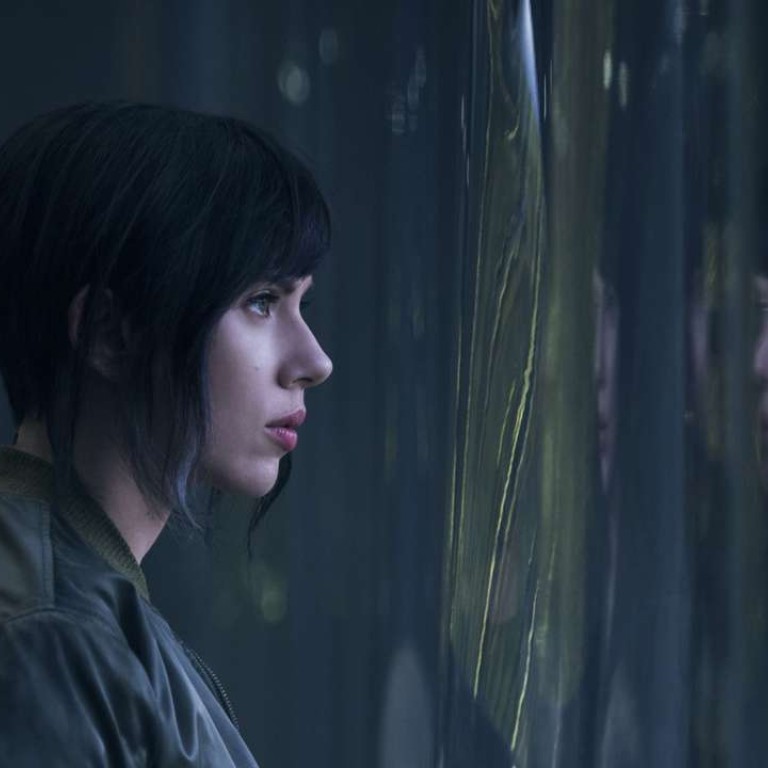
Margaret Cho, George Takei protest over Hollywood ‘whitewashing’ of Asian characters
Entertainers fear a return to the xenophobic Tinseltown of old, and are aghast at recent casting decisions that put Caucasian actors in Asian roles – a practice with a long and ignoble history
Hollywood’s having a rough PR week in the Asian-American community as celebrities such as Margaret Cho and George Takei protest against high-profile castings in Marvel and Paramount films.
On Saturday, actor Takei publicly took issue with white actress Tilda Swinton being cast as The Ancient One in the upcoming film adaptation of the Doctor Strange comic. In the books, the character is of Tibetan origin. After a backlash, a Marvel Studios spokesperson defended the casting in a statement reading, in part, “The Ancient One is a title that is not exclusively held by any one character, but rather a moniker passed down through time, and in this particular film the embodiment is Celtic”.
Takei was not impressed.
“So let me get this straight. You cast a white actress so you wouldn’t hurt sales ... in Asia? This back-pedalling is nearly as cringeworthy as the casting. Marvel must think we’re all idiots,” Takei wrote on Facebook.

He’s not the only one who feels this way, in general. During a conversation with Asian-American actresses Joan Chen, Ming-Na Wen and Lynn Chen, actress Constance Wu spoke out against Scarlett Johansson’s casting as Major Motoko Kusanagi in the upcoming Ghost in the Shell.
“It was particularly heinous because they ran CGI tests to make her look more Asian,” Wu said, referring to reports, denied by Paramount, that the studio altered her appearance with CGI, according to the Hollywood Reporter. “Some people call it ‘yellowface,’ but I say ‘the practice of blackface employed on Asians’ because that’s more evocative.”
In December, comedian Cho criticised Absolutely Fabulous: The Movie for including “yellowface”, which refers to the act of white actors portraying Asian characters. And on Tuesday, Cho led a discussion on Twitter about the “lack of representation for Asian-American communities” in film to kick off a month-long Twitter “campaign against whitewashing”.
The hashtag #whitewashedOUT is being used to criticise several recent casting choices in which white actors portray Asian characters. She spent the discussion both responding to critics (and trolls) and making incisive criticisms of Hollywood (and culture in general).
This sort of casting has a long history in Hollywood.
Back in 1919, white actor Richard Barthelmess portrayed a Chinese character named Cheng Huan (though listed in the IMDB credits as “The Yellow Man”). The movie was called Broken Blossoms but, tellingly, its alternative title was The Yellow Man and the Girl.
The Good Earth, a film about a farmer in China, premiered in 1937. Its characters had names such as “Wang” and “O-Lan.” Its actors? Paul Muni, Luise Rainer, Walter Connolly, Charley Grapewin. Every single main character – all Chinese in the movie – was portrayed by a white actor.
This didn’t only happen in films with actors that may not be known in the mainstream. Katharine Hepburn portrayed a Japanese woman named Jade Tan in 1944’s Dragon Seed. Her eyes are narrowed and her hair pulled back – otherwise, she’s clearly recognisable as Hepburn.
Genghis Khan in 1956’s The Conqueror was portrayed by none other than John Wayne, a man who has been accused of being so racist, California lawmakers recently rejected a proposal to dedicate a day to celebrating the actor.
And, of course, this list wouldn’t be complete without what is likely the most famous of all instances of yellowface: Mickey Rooney, with buck teeth, narrow eyes and that painful accent, portraying the character – nay, the caricature – of the Japanese Mr I.Y. Yunioshi in Breakfast at Tiffany’s in 1961. It’s a role The Wall Street Journal proclaims, in a headline, “nobody wants to talk about”. Yunioshi is the “godfather of the ‘Ching-Chong’ stereotype that continues to rear its yellow head today”, the paper continues.
Before his death, Rooney said he wouldn’t have done the role if he’d known how many it would offend.
This list could continue for days. Most notably, as Cho and Takei want moviegoers to know, it still happens today.
Just last year, Cameron Crowe, known for both his journalism in Rolling Stone and his films Almost Famous and Vanilla Sky, released his latest film Aloha to a disastrous reception from critics (19 per cent on Rotten Tomatoes). Among its cornucopia of flaws was that Emma Stone, an actor so white that Stylist applauded her for embracing her “fair skin”, portrayed an Asian-American woman named Allison Ng. People across the internet were outraged.
“Accepting Emma Stone as an Asian-American in Aloha requires a certain suspension of disbelief and no small amount of magical thinking,” writes Entertainment Weekly.
Crowe has since apologised on his blog for Stone’s casting, writing, “Thank you so much for all the impassioned comments regarding the casting of the wonderful Emma Stone in the part of Allison Ng. I have heard your words and your disappointment, and I offer a heartfelt apology to all who felt this was an odd or misguided casting choice.”
He went on to say the crux of the matter was specifically that she didn’t look like Ng, but the damage was done. The movie opened to a disappointingly low US$10 million at the box office, Variety reported.

It’s hard to imagine Marvel will face the same challenges Crowe did. After all, The Avengers grossed US$1.5 billion worldwide (US$623.4 million in the US alone), Marketwatch reported; and even the studio’s smaller films are impressive earners. When 2015’s Ant-Man, made more than US$500 million worldwide, it was the ninth Marvel film (and seventh consecutive movie) to do so, Forbes reported.
Even so, the hashtag #whitewashedOUT continues to trend on Twitter as non-celebrity users support the month-long campaign.
The Washington Post
